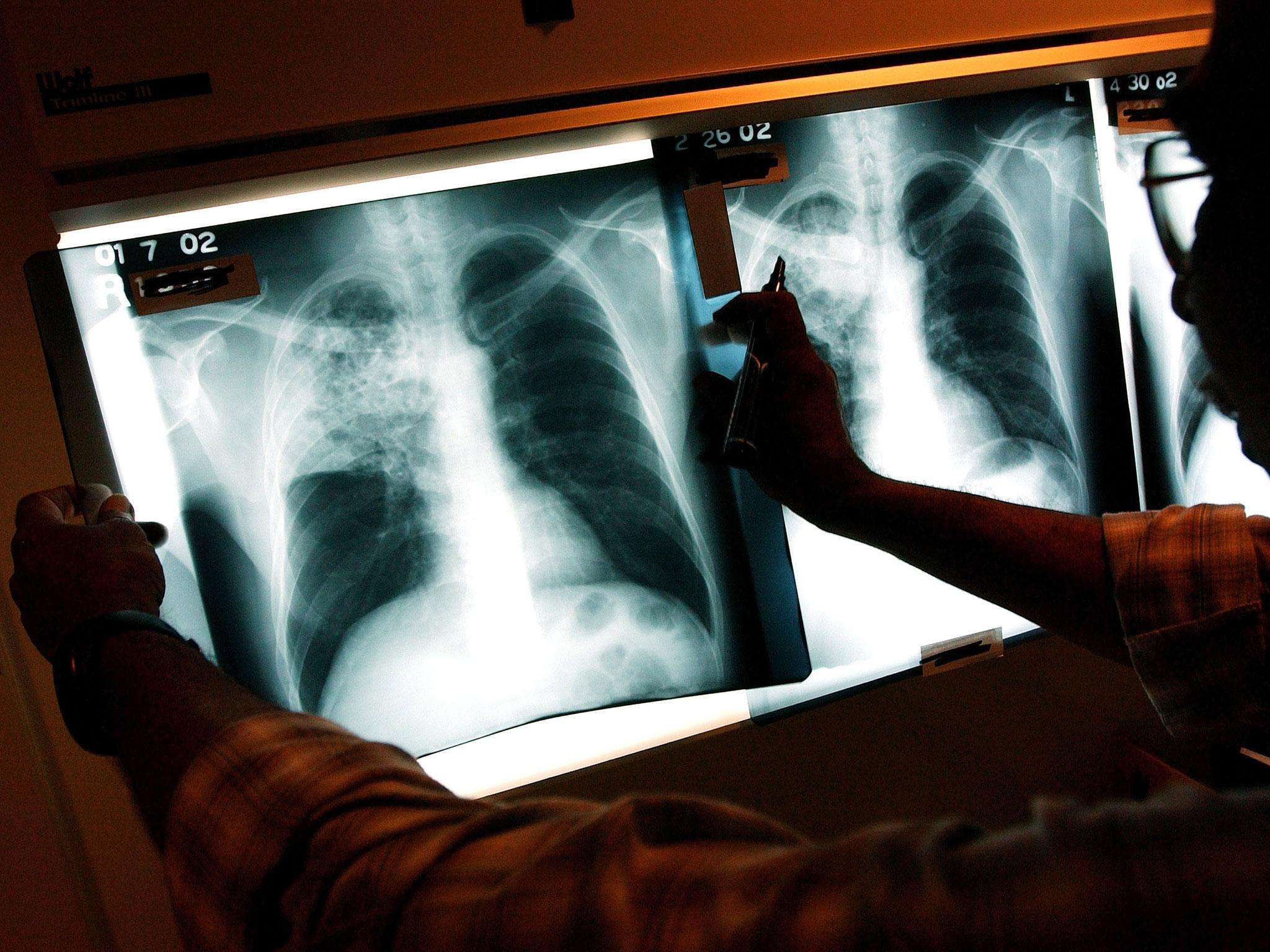Global TB epidemic prompts fresh warnings amid drug-resistance crisis
World Health Organization slams ‘dismal’ response after governments pledged to virtually eradicate the most deadly disease on the planet by 2030

Your support helps us to tell the story
From reproductive rights to climate change to Big Tech, The Independent is on the ground when the story is developing. Whether it's investigating the financials of Elon Musk's pro-Trump PAC or producing our latest documentary, 'The A Word', which shines a light on the American women fighting for reproductive rights, we know how important it is to parse out the facts from the messaging.
At such a critical moment in US history, we need reporters on the ground. Your donation allows us to keep sending journalists to speak to both sides of the story.
The Independent is trusted by Americans across the entire political spectrum. And unlike many other quality news outlets, we choose not to lock Americans out of our reporting and analysis with paywalls. We believe quality journalism should be available to everyone, paid for by those who can afford it.
Your support makes all the difference.The world is making “dismal progress” towards ending the global epidemic of tuberculosis – the infection which kills more people than any other – amid a “crisis” in resistance to drugs used to treat the disease, the World Health Organisation has warned.
An estimated 10.4 million people had TB last year with 1.8 million dying as a result, the WHO said in a new report.
The figures show the disease is significantly more common than previously thought. The WHO had estimated there were 9.6 million cases in 2014, but it put the rise down to better recording in India, where TB is a particular problem.
Experts said there was a need for universal health coverage and public health financing to tackle the disease, which most people survive given the right treatment.
One significant problem is that the bacteria that causes TB is gaining resistance to the drugs used against it. Some 480,000 people had a multi-drug resistant form of the disease last year.
The WHO said at least $2bn (£1.6bn) a year was needed to fund research and development, but funding had never exceeded $0.7bn (£0.6bn) a year between 2005 and 2014.
And funding of care and prevention in poorer countries was also $2bn below the $8.6bn (£7bn) needed, the report added, warning this gap was set to widen to $6bn by 2020.
Dr Mario Raviglione, director of the WHO Global TB Programme, said: “The dismal progress in the TB response is a tragedy for the millions of people suffering from this disease.
“To save more lives now, we must get newly recommended rapid tests, drugs and regimens to those who need them. Current actions and investments fall far short of what is needed.
“The world is finally waking up to the threat of antimicrobial resistance – now is the time to accelerate the multi-drug-resistant-TB response.”
Dr Margaret Chan, the WHO’s Director General, said the world was facing “an uphill battle” to meet the global target to virtually eradicate the disease.
“There must be a massive scale-up of efforts, or countries will continue to run behind this deadly epidemic and these ambitious goals will be missed,” she said.
The United Nations General Assembly agreed to bring about a 90 per cent reduction in TB deaths and an 80 per cent reduction in cases by 2030.
The US Agency for International Development (USAID) provides huge amounts of funding in the fight against the disease.
But Dr Ariel Pablos-Méndez, USAID’s assistant administrator for global health, said: “The resources deployed against TB, the leading infectious killer in the world, are falling short. Everyone has a part to play in closing the gap.
“As the report shows, we need universal health coverage, social protection mechanisms, and public health financing in high burden countries.
“The development aid community needs to step up more investments now, or we will simply not end one of the world’s oldest and deadliest diseases.”
About 60 per cent of cases are found in just six countries with India having the most, followed by Indonesia, China, Nigeria, Pakistan and South Africa.
Global TB deaths fell by 22 per cent between 2000 and 2015, but the disease remains one of the top 10 causes of death worldwide, responsible for more deaths than HIV and malaria.
The report said that multi-drug-resistant TB “remains a public health crisis” with an estimated 480,000 people catching it in 2015, about the same level as 2014.
Nearly half of all cases of multi-drug-resistant forms of TB occurred in three countries: India, China and Russia.
Aaron Oxley, executive director of anti-poverty group Results and a board member of the UN’s Stop TB Partnership, told The Independent the reason the disease was still a major problem was the lack of political interest.
He said the Stop TB Partnership was calling for world leaders to attend a UN summit meeting on the subject next year, which would be the first one ever.
Mr Oxley said the WHO report was “more evidence that the more TB we look for, the more TB we find”.
“The figure of 1.8 million deaths per year is quite frankly shocking news,” he said. “The fact that we discovered it is at that level is enormous.”
He praised the UK for “showing a lot of leadership” on antibiotic resistance and said TB would have to be taken into consideration when dealing with that.
The target to reduce TB to the point where it was no longer a public health threat was looking “increasingly challenging”, Mr Oxley added.
Join our commenting forum
Join thought-provoking conversations, follow other Independent readers and see their replies
Comments